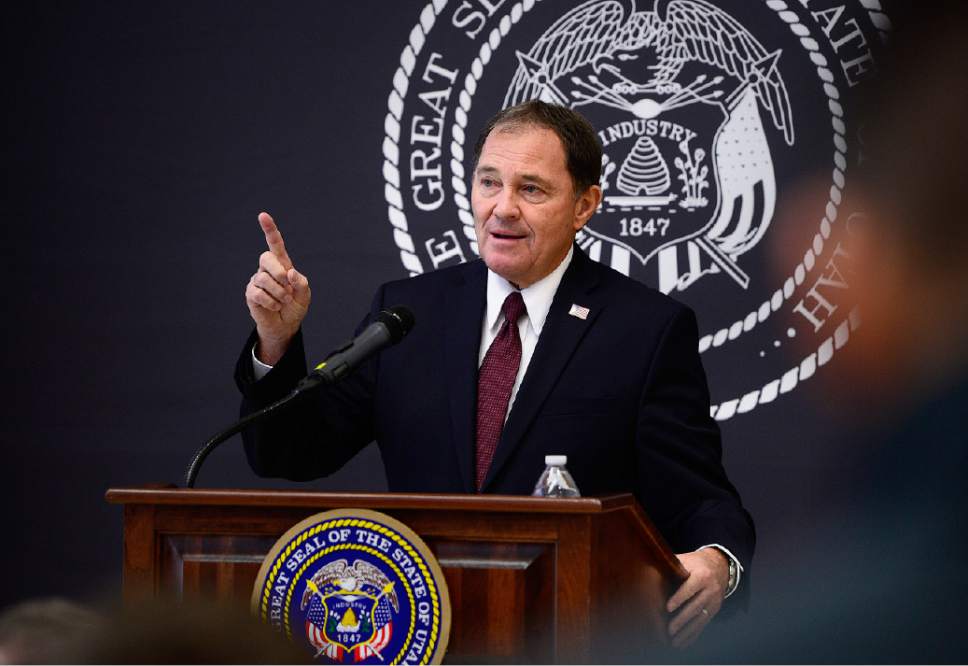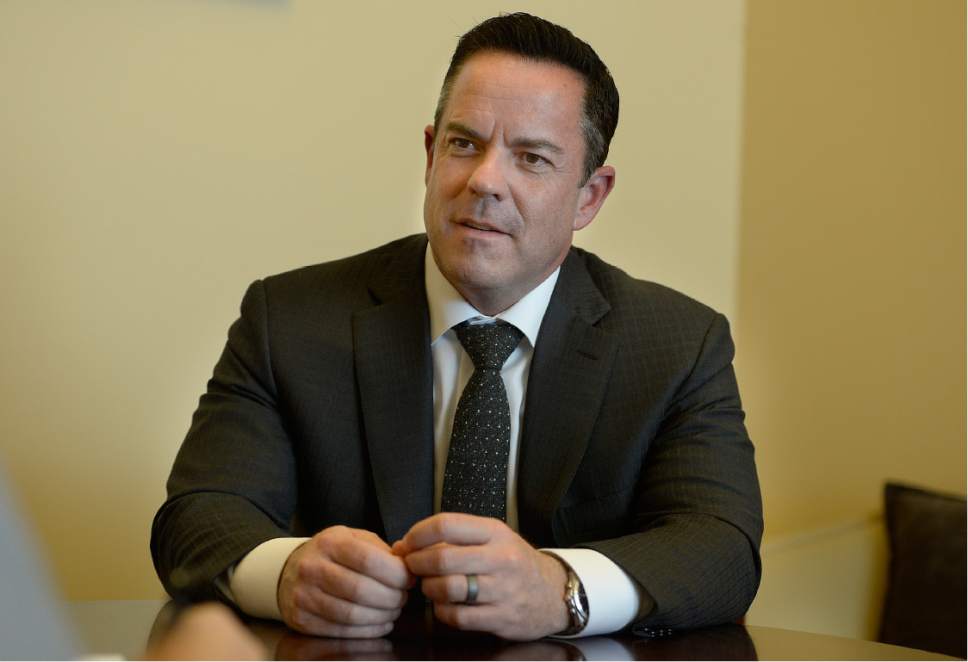This is an archived article that was published on sltrib.com in 2017, and information in the article may be outdated. It is provided only for personal research purposes and may not be reprinted.
Utah legislators now want power to call themselves into a special session — authority that now rests solely with the governor.
That comes amid a dust-up between Gov. Gary Herbert and legislators about whether such a session is needed to enact rules for a special election to replace U.S. Rep. Jason Chaffetz, R-Utah, if he resigns early — which he said he plans to do.
Herbert says no special session is needed because current law is clear about how elections are conducted. Legislators say the process could take 300 days, and they want quicker selection — such as allowing party delegates to choose nominees, foreclosing the chance for the wider electorate to vote and for candidates to qualify for a primary by collecting signatures.
Herbert could prevail on the issue simply by refusing to call a special session. House Majority Leader Brad Wilson says that is not sitting well with lawmakers, and he will propose a constitutional amendment to allow legislators to call themselves into session.
"This is a good example of a time when the Legislature should act and do what special sessions are designed to do, which is get together and solve an issue or problem," Wilson said Friday. "I'm getting a lot of calls and requests from members of the body not understanding why this isn't happening, when they view it as clearly their prerogative" to design special-election procedures.
The Kaysville Republican said he has thought about seeking such power for years because of other disagreements. He said one instance was when the House felt it needed a special session to outline how to investigate allegations against former Attorney General John Swallow.
The earliest the Legislature could vote on such a proposed constitutional amendment — assuming the governor wouldn't call a special session for such a purpose — is in January. It would require two-thirds approval in both houses and then would go before voters in the November 2018 general election.
Wilson said 35 other states have power to call themselves into session with either a three-fifths or a two-thirds vote of both bodies.
The majority leader said he wants to narrow the sorts of issues that could come up in such a session. For example, he wants the budget considered only during regular annual general sessions. "We want to clearly define what does and doesn't rise to the level of a special session called by the Legislature."
He adds, "I'm not trying to do anything to limit the governor's ability to call a special session. I'm just trying to give the Legislature the ability to call itself into a special session at times if the governor chooses not to."
Wilson says legislators "have a good relationship" with the governor, and his move is not meant as a dig at him. But their disagreement on special elections led lawmakers to believe it makes sense to be able to call their own sessions sometimes.
"It's a separation-of-powers issue, and allowing lawmakers to do what they have been elected to do," Wilson said. "I don't know why the governor always needs to be the one to initiate that process if there is work to be done."
Paul Edwards, spokesman for the governor, said his office had heard rumblings about the proposal, but that it had not seen specifics.
"We recognize very much that it is the Legislature's prerogative to propose amendments to the state Constitution," he said.
The governor's position, Edwards added, remains unchanged that no special session is now needed.
"In the current statutes, we have the basic contours for what constitutes an election in the state," he said, and the process in a special election should mirror that.
Herbert also said last week that because several legislators are considering running to replace Chaffetz, he doesn't "want anyone gaming the system" in ways to help certain candidacies by changing laws on the books.
House Speaker Greg Hughes, R-Draper, was mentioned as a potential candidate for Chaffetz's seat, but he told The Associated Press on Friday that he won't run.
The governor has reason to be wary of proposals to allow delegates to select party nominees. GOP delegates tend to be far more conservative than other voters. Despite high approval ratings, Herbert finished second at the GOP convention last year. But he won the primary easily and was re-elected in a landslide.
Wilson says current procedures could leave Utah's 3rd Congressional District unrepresented in Washington for nearly a year.
"We're talking nearly 300 days, is what I am hearing right now is a possibility, unless the Legislature comes into special session and fixes it," Wilson said. "We're doing a study right now on what other states have done. We'll try to learn from others' mistakes and successes, and will customize it to fit Utah."





